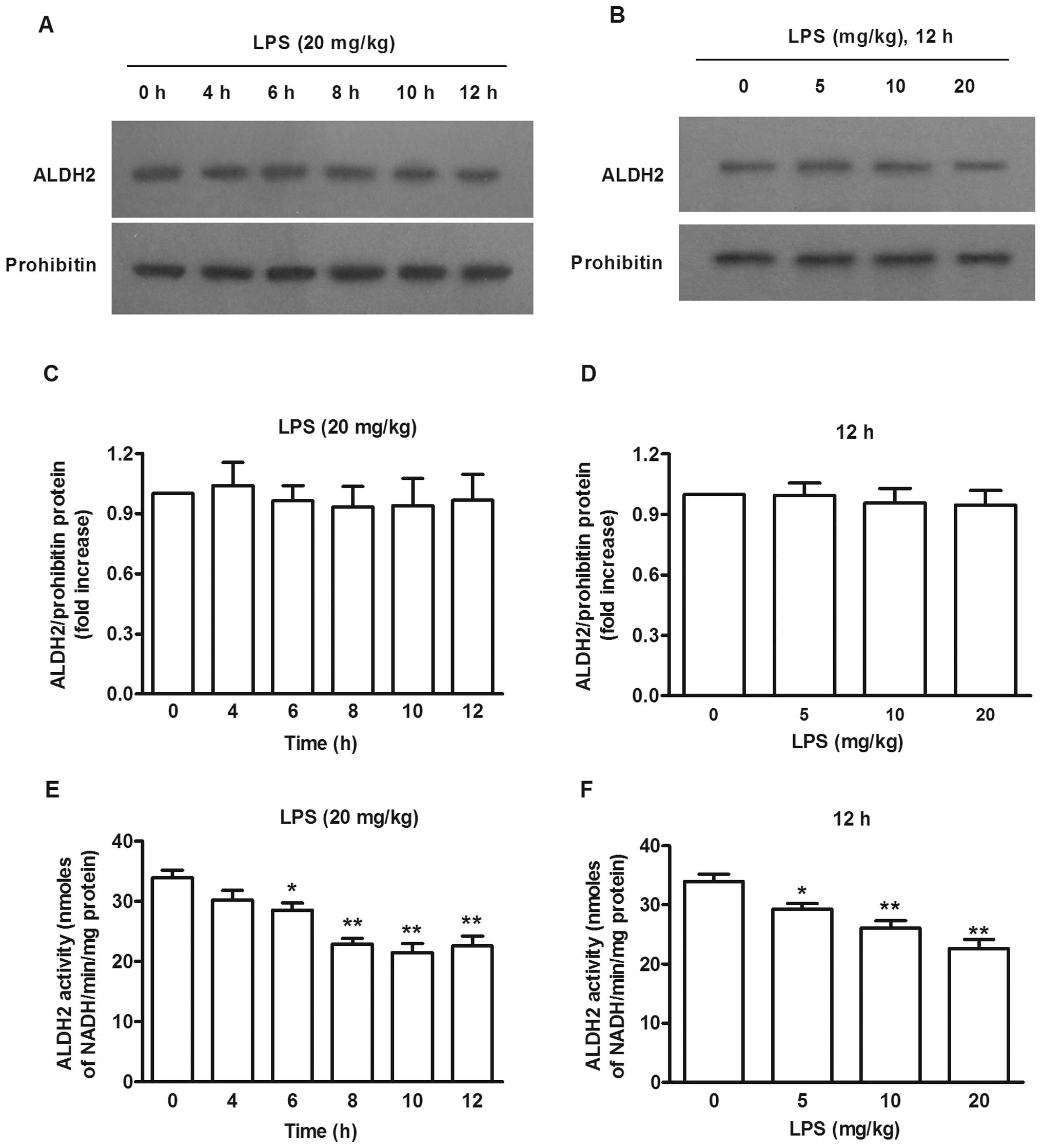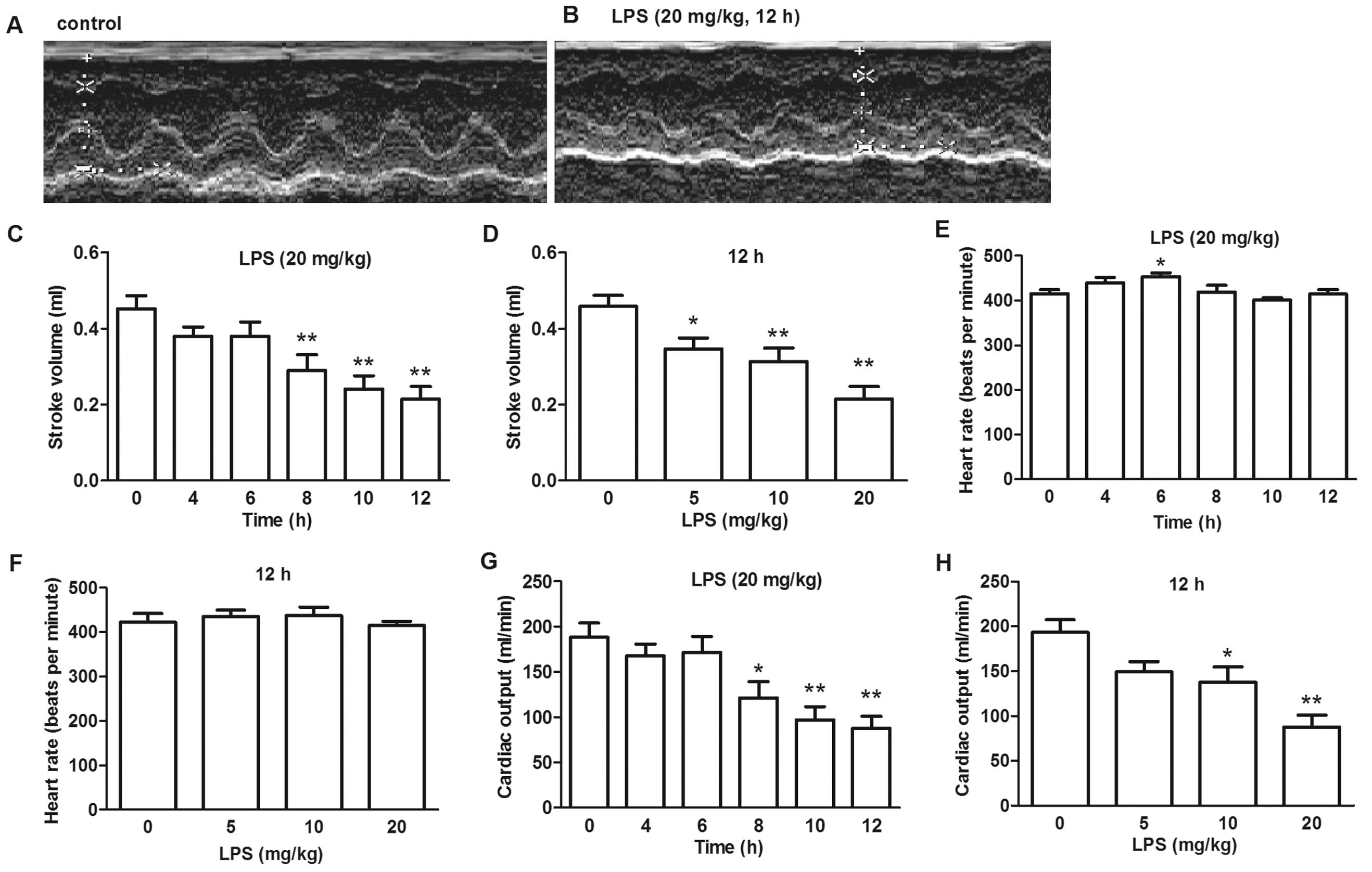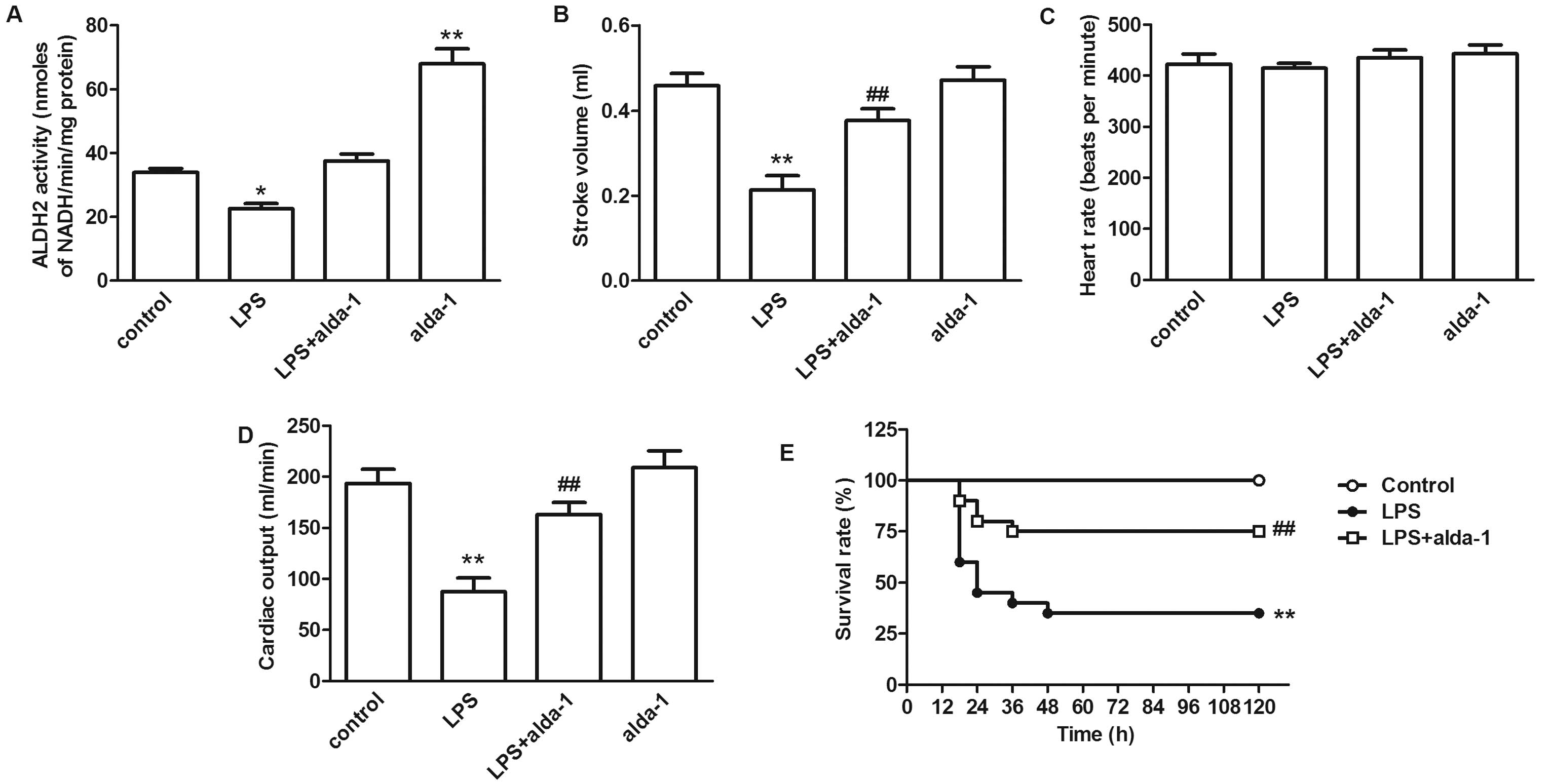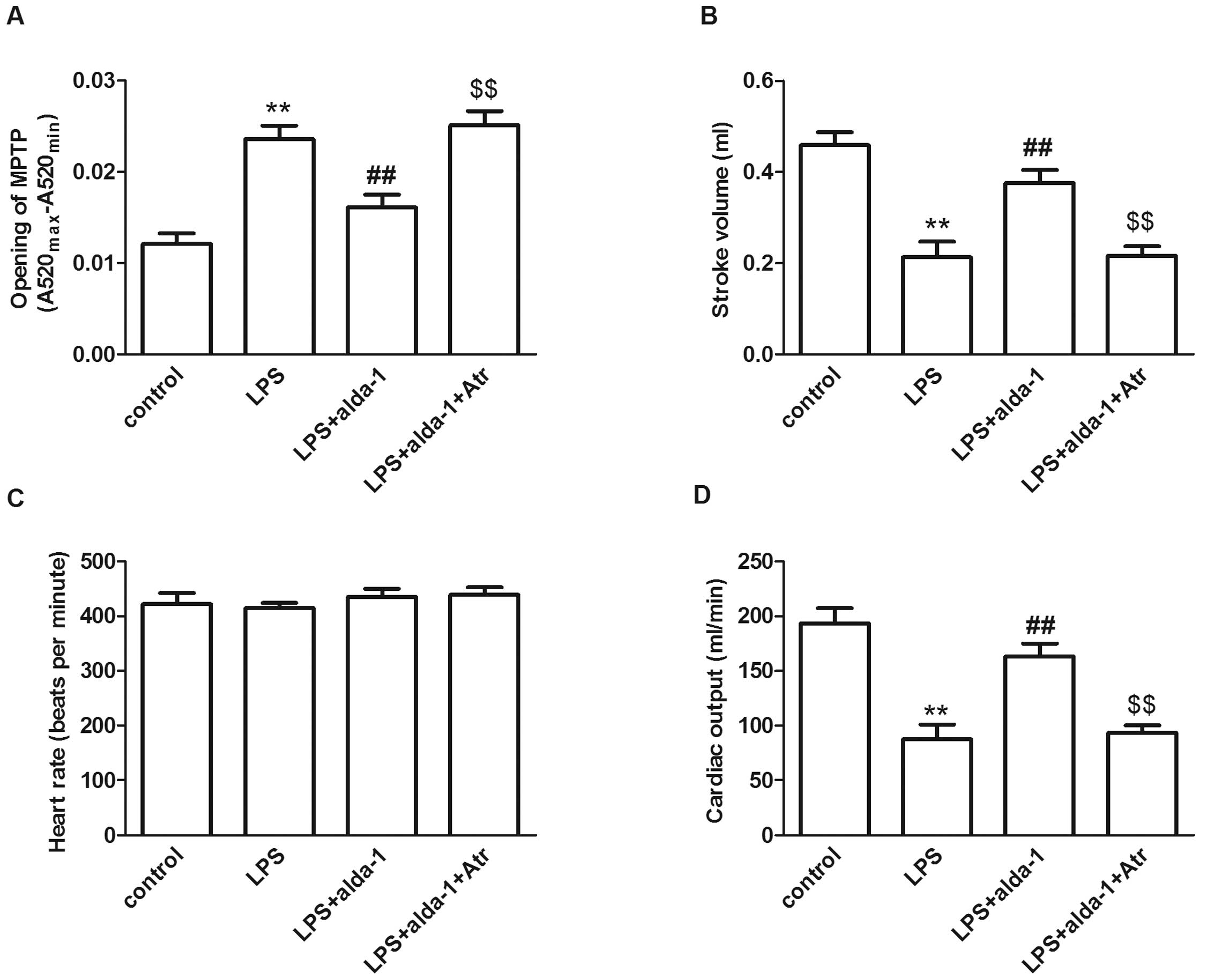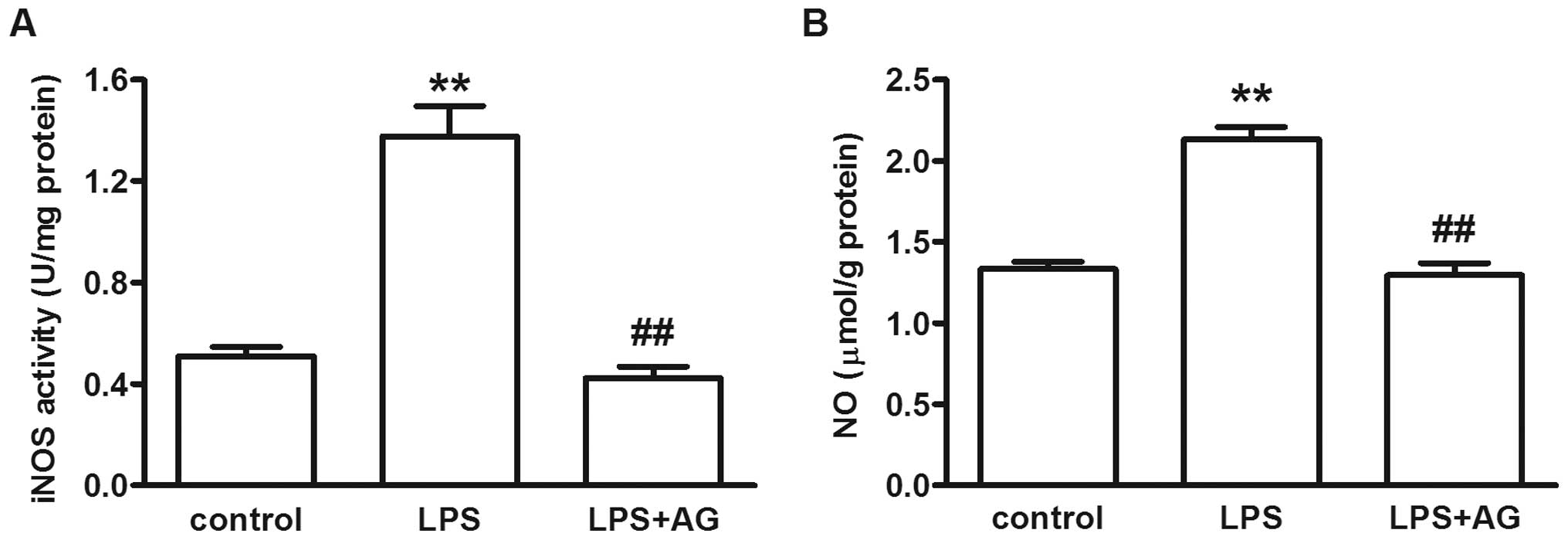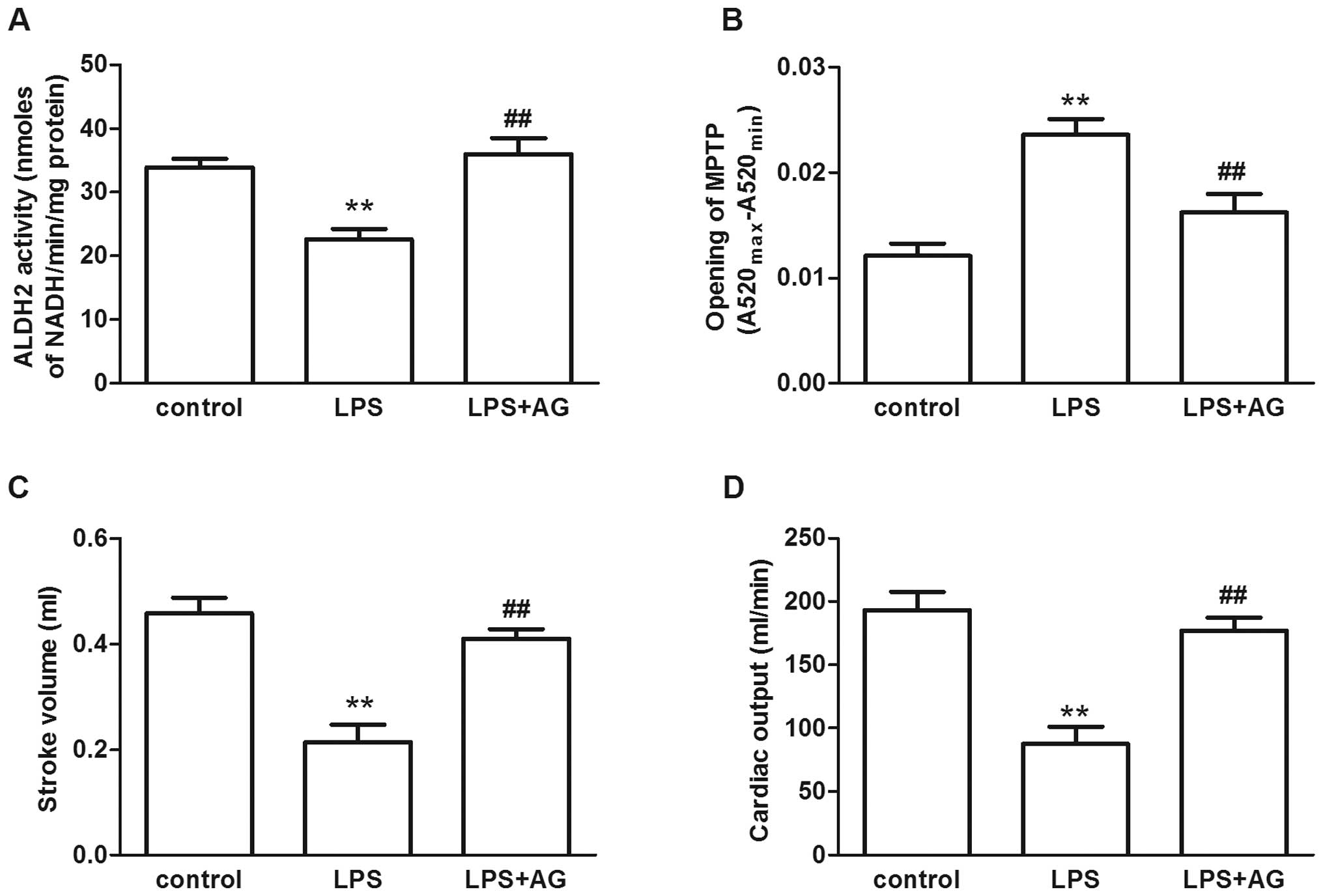|
1
|
Levy MM, Dellinger RP, Townsend SR, et al:
The Surviving Sepsis Campaign: results of an international
guideline-based performance improvement program targeting severe
sepsis. Intensive Care Med. 36:222–231. 2010. View Article : Google Scholar : PubMed/NCBI
|
|
2
|
Flierl MA, Rittirsch D, Huber-Lang MS,
Sarma JV and Ward PA: Molecular events in the cardiomyopathy of
sepsis. Mol Med. 14:327–336. 2008.PubMed/NCBI
|
|
3
|
Flynn A, Chokkalingam Mani B and Mather
PJ: Sepsis-induced cardiomyopathy: a review of pathophysiologic
mechanisms. Heart Fail Rev. 15:605–611. 2010. View Article : Google Scholar : PubMed/NCBI
|
|
4
|
Khadour FH, Panas D, Ferdinandy P, et al:
Enhanced NO and superoxide generation in dysfunctional hearts from
endotoxemic rats. Am J Physiol Heart Circ Physiol. 283:H1108–1115.
2002.PubMed/NCBI
|
|
5
|
Revelly JP, Tappy L, Martinez A, et al:
Lactate and glucose metabolism in severe sepsis and cardiogenic
shock. Critical care medicine. 33:2235–40. 2005. View Article : Google Scholar : PubMed/NCBI
|
|
6
|
Ramana KV, Willis MS, White MD, et al:
Endotoxin-induced cardiomyopathy and systemic inflammation in mice
is prevented by aldose reductase inhibition. Circulation.
114:1838–46. 2006. View Article : Google Scholar : PubMed/NCBI
|
|
7
|
Luo XJ, Liu B, Ma QL and Peng J:
Mitochondrial Aldehyde Dehydrogenase, a Potential Drug Target for
Protection of Heart and Brain from Ischemia/Reperfusion Injury.
Current drug targets. 15:948–55. 2014.PubMed/NCBI
|
|
8
|
Chen CH, Budas GR, Churchill EN, et al:
Activation of aldehyde dehydrogenase-2 reduces ischemic damage to
the heart. Science. 321:1493–1495. 2008. View Article : Google Scholar : PubMed/NCBI
|
|
9
|
Wang J, Wang H, Hao P, et al: Inhibition
of aldehyde dehydrogenase 2 by oxidative stress is associated with
cardiac dysfunction in diabetic rats. Mol Med. 17:172–179.
2011.
|
|
10
|
Doser TA, Turdi S, Thomas DP, et al:
Transgenic overexpression of aldehyde dehydrogenase-2 rescues
chronic alcohol intake-induced myocardial hypertrophy and
contractile dysfunction. Circulation. 119:1941–1949. 2009.
View Article : Google Scholar : PubMed/NCBI
|
|
11
|
Ge W, Guo R and Ren J: AMP-dependent
kinase and autophagic flux are involved in aldehyde
dehydrogenase-2-induced protection against cardiac toxicity of
ethanol. Free Radic Biol Med. 51:1736–1748. 2011. View Article : Google Scholar : PubMed/NCBI
|
|
12
|
Koda K, Salazar-Rodriguez M, Corti F, et
al: Aldehyde dehydrogenase activation prevents reperfusion
arrhythmias by inhibiting local renin release from cardiac mast
cells. Circulation. 122:771–781. 2010. View Article : Google Scholar : PubMed/NCBI
|
|
13
|
Hickson-Bick DL, Jones C and Buja LM:
Stimulation of mitochondrial biogenesis and autophagy by
lipopolysaccharide in the neonatal rat cardiomyocyte protects
against programmed cell death. J Mol Cell Cardiol. 44:411–418.
2008. View Article : Google Scholar
|
|
14
|
Balija TM and Lowry SF: Lipopolysaccharide
and sepsis-associated myocardial dysfunction. Curr Opin Infect Dis.
24:248–253. 2011. View Article : Google Scholar : PubMed/NCBI
|
|
15
|
Baines CP, Song CX, Zheng YT, et al:
Protein kinase Cepsilon interacts with and inhibits the
permeability transition pore in cardiac mitochondria. Circ Res.
92:873–880. 2003. View Article : Google Scholar : PubMed/NCBI
|
|
16
|
Stewart MJ, Malek K and Crabb DW:
Distribution of messenger RNAs for aldehyde dehydrogenase 1,
aldehyde dehydrogenase 2, and aldehyde dehydrogenase 5 in human
tissues. J Investig Med. 44:42–46. 1996.PubMed/NCBI
|
|
17
|
Vasiliou V, Pappa A and Estey T: Role of
human aldehyde dehydrogenases in endobiotic and xenobiotic
metabolism. Drug Metab Rev. 36:279–299. 2004. View Article : Google Scholar : PubMed/NCBI
|
|
18
|
Liao J, Sun A, Xie Y, et al: Aldehyde
dehydrogenase-2 deficiency aggravates cardiac dysfunction elicited
by endoplasmic reticulum stress induction. Mol Med. 18:785–793.
2012.PubMed/NCBI
|
|
19
|
Zhang P, Xu D, Wang S, et al: Inhibition
of aldehyde dehydrogenase 2 activity enhances antimycin-induced rat
cardiomyocytes apoptosis through activation of MAPK signaling
pathway. Biomed Pharmacother. 65:590–593. 2011. View Article : Google Scholar
|
|
20
|
Ma H, Guo R, Yu L, Zhang Y and Ren J:
Aldehyde dehydrogenase 2 (ALDH2) rescues myocardial
ischaemia/reperfusion injury: role of autophagy paradox and toxic
aldehyde. Eur Heart J. 32:1025–1038. 2011. View Article : Google Scholar :
|
|
21
|
Zhang Y, Babcock SA, Hu N, et al:
Mitochondrial aldehyde dehydrogenase (ALDH2) protects against
streptozotocin-induced diabetic cardiomyopathy: role of GSK3β and
mitochondrial function. BMC Med. 10:402012. View Article : Google Scholar
|
|
22
|
Baines CP: The cardiac mitochondrion:
nexus of stress. Annu Rev Physiol. 72:61–80. 2010. View Article : Google Scholar : PubMed/NCBI
|
|
23
|
Hausenloy DJ, Duchen MR and Yellon DM:
Inhibiting mitochondrial permeability transition pore opening at
reperfusion protects against ischaemia-reperfusion injury.
Cardiovasc Res. 60:617–625. 2003. View Article : Google Scholar : PubMed/NCBI
|
|
24
|
Hunter DR, Haworth RA and Southard JH:
Relationship between configuration, function, and permeability in
calcium-treated mitochondria. J Biol Chem. 251:5069–5077.
1976.PubMed/NCBI
|
|
25
|
Halestrap AP: A pore way to die: the role
of mitochondria in reperfusion injury and cardioprotection. Biochem
Soc Trans. 38:841–860. 2010. View Article : Google Scholar : PubMed/NCBI
|
|
26
|
Ohta S, Ohsawa I, Kamino K, Ando F and
Shimokata H: Mitochondrial ALDH2 deficiency as an oxidative stress.
Ann NY Acad Sci. 1011:36–44. 2004. View Article : Google Scholar : PubMed/NCBI
|
|
27
|
McDonald LJ and Moss J: Nitric
oxide-independent, thiol-associated ADP-ribosylation inactivates
aldehyde dehydrogenase. J Biol Chem. 268:17878–17882.
1993.PubMed/NCBI
|
|
28
|
DeMaster EG, Redfern B, Quast BJ, Dahlseid
T and Nagasawa HT: Mechanism for the inhibition of aldehyde
dehydrogenase by nitric oxide. Alcohol. 14:181–189. 1997.
View Article : Google Scholar : PubMed/NCBI
|
|
29
|
Seija M, Baccino C, Nin N, et al: Role of
peroxynitrite in sepsis-induced acute kidney injury in an
experimental model of sepsis in rats. Shock. 38:403–410. 2012.
View Article : Google Scholar : PubMed/NCBI
|
|
30
|
Moon KH, Kim BJ and Song BJ: Inhibition of
mitochondrial aldehyde dehydrogenase by nitric oxide-mediated
S-nitrosylation. FEBS Lett. 579:6115–6120. 2005. View Article : Google Scholar : PubMed/NCBI
|















